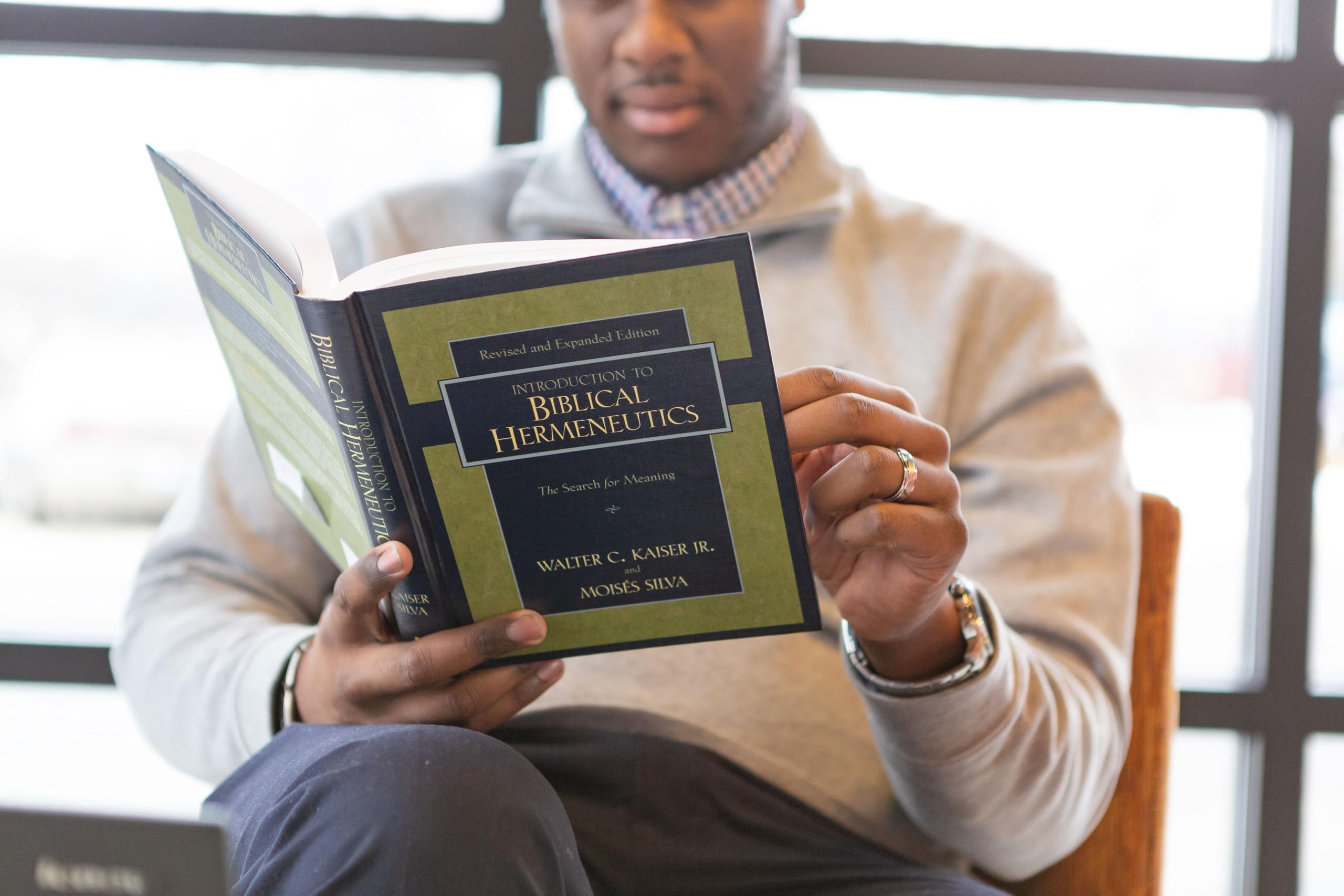Sobre nosotros
Servicios al cliente
Atención al cliente
Acceso Regional
Legales y políticas
Obtén la aplicación

Apunta tu cámara para descargar la aplicación
Copyright © 2024 Desertcart Holdings Limited



Full description not available
C**E
Hermeneutics for Everyone
Introduction to Biblical Hermeneutics: The Search for Meaning, by Walter C. Kaiser and Moisés Silva, published by Zondervan, Grand Rapids, MI and copyrighted in 2007 (ISBN 978-0-310-27951-8, Kindle edition), has been a fun and illuminating read. As opposed to a dry textbook this work opens with engaging examples in Chapter 1 from Shakespeare's Othello and in Chapter 2 from Lewis Carroll's Alice in Wonderland, illustrating how confusing language can be without even requiring translation. The text is broken into four parts including Searching for Meaning, Understanding the Text, Responding to the Text, and The Search for Meaning. While drawing the student in through great examples, the lessons challenge them to think in newer ways such as Hans-Georg Gadamer’s concept of "The meaning of a text always goes beyond its author;” and Paul Ricoeur’s idea that "A text is semantically independent of the intention of its author.” The result forces the student to consider the manner in which we read, understand and apply the text. Each chapter offers a strong conclusion sub section, followed by endnotes. The work also offers a glossary and annotated bibliography to accompany the endnotes from each chapter. The authors come together from different hermeneutical views and collaborate to create this single work unifying the approach. This second edition has been updated to answer questions regarding analysis of Scripture regarding subjects such as gender roles, worship styles and other contemporary issues. In the final part, author Silva, while historically a not a strong proponent of Calvinism, offers a chapter on Calvinistic Hermeneutics, focusing on the methods of interpretation which lead to that distinctive theology. The book establishes itself as a great read for both the “expert” and the lay person.
J**E
Great book
Needed this for my theology study and it proved great. Great piece of material
B**R
Two distinct voices echoing within the same book cover
I picked this book up as a peremptory safety measure to reading William Webb's work on what he calls Redemptive Movement Hermeneutic: "Slaves, Women & Homosexuals: Exploring the Hermeneutics of Cultural Analysis". His is a commendable yet seemingly flawed work--I'll get to writing that review later.Kaiser & Silva provide a brief but broad historical survey of hermeneutics, from the early rabbinic approaches for the Torah, to current principles held in regard today. It is a great "top-down" book, in that it provides a realistic context for those who attempt to unpack the scriptures. People of faith have been attempting this since receiving inspired texts, with varying depths of success and failure.The voicings of the esteemed scholars are distinct, and I found the book rather choppy reading, like a multi-movement symphony alternating between 2 solo instruments: Kaiser's historic and subtle cello vs. Silva's warm, thoughtful oboe.Personally, I found Silva's synopsis on the work and contribution of some twentieth century philosophers very resonant, in that we need to consider the 3 cultural horizons of the writer, the original audience, and our own baggage which we bring to the scriptures. A humble awareness of our experiential shapings is critical in approaching the Bible.I hope the Church today can continue to redeem James 1:22 "Do not merely listen to the word, and so deceive yourselves. Do what it says." I find that our human experience, tradition and expectations can dominate the Church, rather than what it (the Bible) says. The Introduction to Biblical Hermeneutics supplies us a with a refreshing conclusion to work out our salvation with some humility, if not fear and trembling, that our old selves present barriers to understanding, as shown throughout the history of hermeneutical studies.I also agree with the authors that the Word and the Spirit are sufficient for individual growth and the acqusition of Truth. Where members of the body of Christ collide is why accurate and authoritative interpretation is so required.
M**P
The best book on hermeneutics I've ever read (and I've read a lot)
Most books on hermeneutics are like Polonius, just spewing a series of platitudes. This book, particularly the last few chapters, digs into the real challenges of Biblical hermeneutics. The fact that it is by two authors who, while both committed evangelicals, disagree on some significant issues, helps illustrate and clarify the issues that get glossed over or ignored by many conventional and anodyne treatments.
R**I
Thorough
A tough read even for the experienced Bible scholar.
K**H
One of the best on the subject
I have other books on the subject and I must say that this is probably the best of the lot. It is easy to read and for someone that isn't a pastor, but just wants to know and have a better understanding of God's word, this book goes a long way to fill that need. It would certainly be a very good book for classroom as well as private study.I would certainly recommend this book to anyone who has studied the Bible, but has a desire to dig a little deeper.
J**.
Highten understanding
This book's binding and page thickness was perfect.The information heightens Biblical understanding. Great tool in your Bible study.
N**O
Information
This is a real good book! So much information and wisdom put into it. I'm using it as an addition of study for my other seminary classes.
Trustpilot
Hace 3 semanas
Hace 2 semanas